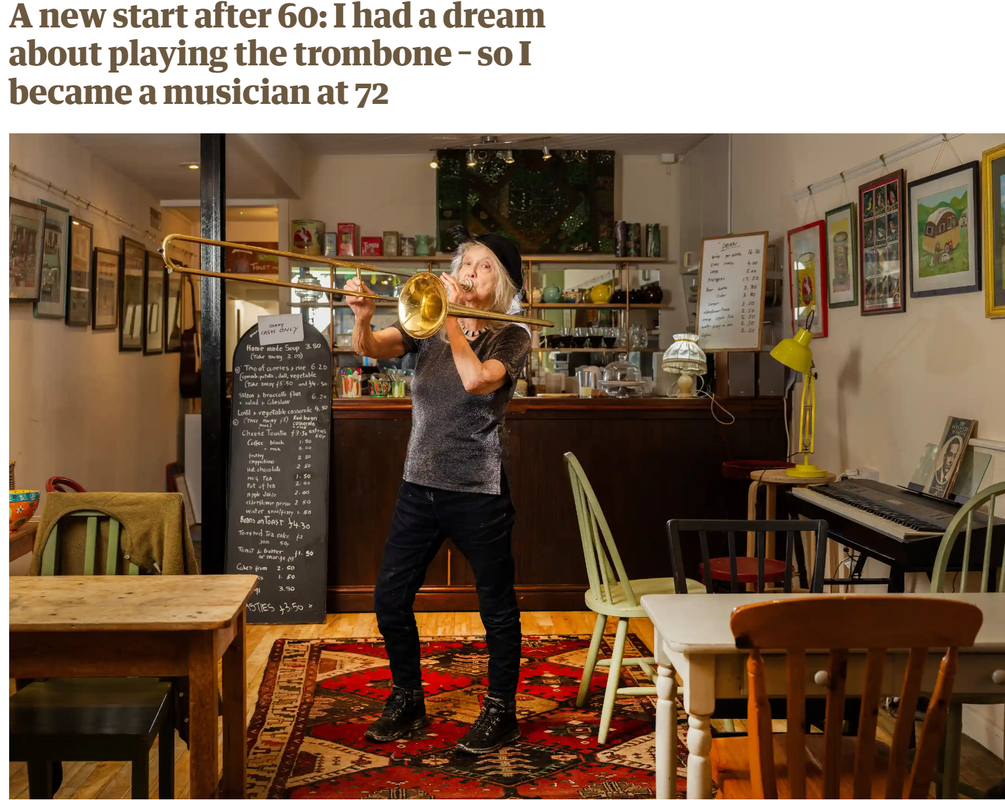|
I take lessons and play in several musical groups. Only one group needs serious practice of specific pieces outside of rehearsals. However, all the groups are populated with active and retired professional musicians, like me, who expect that I will show up ready to play. Furthermore, the teacher I work with expects me to show up prepared. Some weeks I'm given a dozen pieces to learn. This is how I manage. I divide the pieces into two piles. The first pile consists of the pieces I can sightread. I never practice these. The second pile is divided into two further piles: the easy pile which consists of pieces that have passages that need the once over and the difficult pile that causes panic. I quickly dispatch the easy pile. In preparation for tackling the difficult pieces I repeatably listen to professional recordings of the pieces to have a clear aural understanding of the part. I then tackle the difficult stuff as follows.
Because I've prepared properly my heart is not conflicted. I'm at peace with whatever happens because I have done all that is humanly possible. However, sometimes, life gets in the way, and I will show up less than prepared. Then the banked musical skills of half a century kick in. You may not have half a century of experience to lean into, but as time goes by you will. If I can help you learn to practice, call me. David Revised 2024
0 Comments
I taught my first piano student in 1982.I can still remember the song I taught them to play. "Wake me up before you go go" by Wham. They were thrilled. What have I learned in the intervening years on student success? Plenty. Here are a few understandings about learning successful students have. 1. It takes years to acquire any sort of mastery. Learning piano is a ladder one climbs year after year after year. However, if your goal is to plunk out simple melodies and play some chords the road is not so long. Most students have ambitions somewhere in between. 2. Successful students enjoy every part of the journey: technique, aural skills, etudes, repertoire development and retention, sightreading, theory, and playing with others from time to time. 3. To take up the piano in adulthood, one will have to give something up to make room for it. 4. Students preparing for post-secondary music studies must have full parental support and encouragement. 5. Students preparing for post-secondary music studies must have Olympian levels of commitment and determination to their project. 6. It is never too late to start. If I can help you on your journey, call me. David PS. I took up the drums at age 50. Fourteen years later I now play, twice a week or more, in different groups that I'm proud to invite students to hear. For more stories on learning music as an adult click on these links: Piano lessons site:www.theguardian.com or adult music lessons site:www.theguardian.com
|
You've got to learn your instrument. Then, you practice, practice, practice. And then, when you finally get up there on the bandstand, forget all that and just wail. AuthorI'm a professional pianist and music educator in West Toronto Ontario. I'm also a devoted percussionist and drum teacher. Categories
All
|

 RSS Feed
RSS Feed